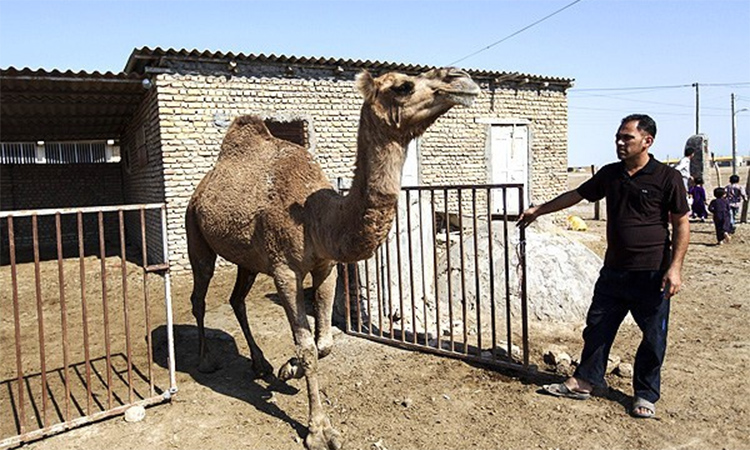CHRI – Blood money should be calculated on the basis of actual costs and inflation, not the market price for camels, as it is currently based on in Iran, according to a Tehran-based civil rights lawyer.
 According to Islamic law, Diyah, known as “blood money” in English, is paid as financial compensation to the victim or heirs of a victim in cases of murder, bodily harm, or property damage.
According to Islamic law, Diyah, known as “blood money” in English, is paid as financial compensation to the victim or heirs of a victim in cases of murder, bodily harm, or property damage.
“Those who originally wrote the Islamic laws were making their calculations based on social realities,” attorney Mohammad Moghimi told the Center for Human Rights in Iran (CHRI) on December 13, 2017. “They were being original and progressive for their time.”
“We should not be stuck in the past and look at the situation from a narrow, orthodox angle,” he added. “That would go against the spirit of the original lawmakers. Instead, we must rely on real costs adjusted for inflation.”
Moghimi also told CHRI that the increasing cost of blood money will likely increase Iran’s prison population, as it is bound to become too costly for low-income and some middle-income defendants to afford.
“If you cannot pay the compensation, you go to prison,” he explained.
Iran’s Islamic Penal Code has authorized the judiciary to set blood money according to the interpretation of centuries’ old Shia Islamic laws by the country’s sitting supreme leader.
Currently, if a person is convicted of accidentally taking someone’s life, he has the choice of paying the amount equal to the price of 100 camels, 100 cows, 1,000 sheep, 200 suits made of Yemeni cloth, 1,000 gold coins, or 10,000 silver coins.
Every year, Iran’s judiciary sets the minimum amount of blood money according to the market price of 100 camels, which has traditionally been the lowest costing option. The amount for this Iranian year (March 2017-March 2018) was set at about 210 million tomans ($60,000 USD).
However, a recent drop in Iran’s camel population has increased the price of the animal, resulting in an increase of the market price for camels. To reduce the price, Iran has begun importing camels from Pakistan and Afghanistan, the semi-official Mehr news agency reported on November 27, 2017.
Now insurance companies, which issue blood money (commonly in cases of deadly car accidents), are complaining about the rising cost of camels.
“Insurance companies are losing money because the increasing cost of camels is raising blood money compensations,” the judiciary’s insurance affairs’ expert, Hamid Ahmadzadeh Kashani, told the Islamic Republic of Iran Broadcasting service in May 2016.
Iranians on social media have been poking fun at the move and referring to insurance companies as “camel herders.”
“To buy a few camels from an Afghan herder we had to negotiate a deal at the London stock exchange? The things you hear when you live long enough…” wrote civil right activist Nasser Karmai on his Facebook page on November 30, 2017.
Another Iranian, calling himself “Likelihood,” joked about pricing human lives based on camels.
“I have an undergraduate degree, two graduate degrees, and a Kia Pride. I don’t own a house or an orchard or anything like that. How many camels am I worth?” tweeted another Iranian on December 12, 2017.
 Shabtabnews In this dark night, I have lost my way – Arise from a corner, oh you the star of guidance.
Shabtabnews In this dark night, I have lost my way – Arise from a corner, oh you the star of guidance.


